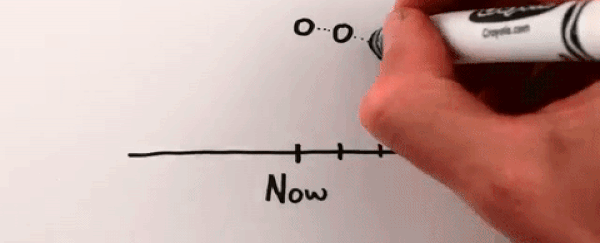The basic laws of physics that form our fundamental understanding of the Universe around us are strangely silent on the direction of time. If you wanted to build a Universe from scratch, you could take those laws and construct a place where time goes backwards, not forwards, and you wouldn't be violating any of their terms.
So why does time happen to move forward in our Universe?
As the latest episode of MinutePhysics explains, the Standard Model of Physics can be used to relate what's going on now to what's going to happen next, and to what happened previously, but there's no distinction in its laws between 'forward' and 'backward' in time.
Whether past or future, it's all the same to the laws that govern how the minuscule building blocks of the Universe behave.
That's pretty strange, because when you zoom right out and consider the things those atomic building blocks make up - trees, dogs, us - the fact that time moves forwards, young becomes old, alive becomes dead is the fundamental rule that drives everything.
So how can a sum of parts follow a truth that the building blocks ignore?
The answer comes down to a little something called entropy - a measure of disorder.
As the Second Law of Thermodynamics states, only in our visible world does something move from a low entropy state to a high entropy state - order to chaos - as time increases.
This theory makes a lot of sense when you consider the history of the Universe, because it states that in the beginning, there was order, and we're progressively becoming less ordered, and more chaotic.
As MinutePhysics explains above, 13.8 billion years ago, the Universe was hot, dense, smooth, and rapidly expanding - a delicately balanced, low entropy state.
But thanks to the force of gravity, things have become more and more disordered, with that dense congregate of matter spreading out to form random clumps of things like protostars, protogalaxies, and black holes.
And you know what's a pretty terrifying thought? The march towards high entropy in our Universe will keep going until we reach 'equilibrium' - otherwise known as complete and utter nothingness.
Yep, our Universe and everything in it is on a one-way track towards total emptiness, where life and matter does not exist.
So what happens to the direction of time in all that emptiness? I'll let the video above explain that one to you, but let's just say death will be the least of your problems once the Universe finally hits equilibrium.
